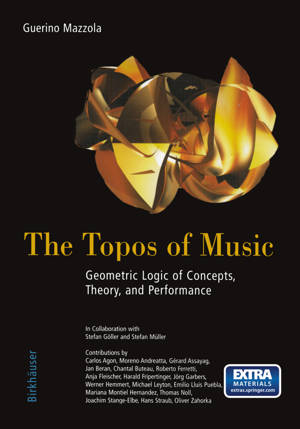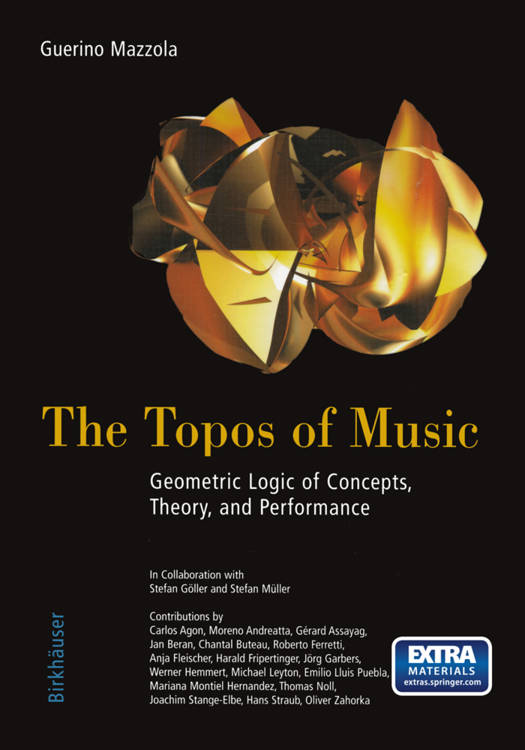
- Afhalen na 1 uur in een winkel met voorraad
- Gratis thuislevering in België vanaf € 30
- Ruim aanbod met 7 miljoen producten
- Afhalen na 1 uur in een winkel met voorraad
- Gratis thuislevering in België vanaf € 30
- Ruim aanbod met 7 miljoen producten
Zoeken
The Topos of Music
Geometric Logic of Concepts, Theory, and Performance
Guerino Mazzola
Boek | Engels
€ 145,71
+ 291 punten
Uitvoering
Omschrijving
Man kann einen jeden BegrifJ, einen jeden Titel, darunter viele Erkenntnisse gehoren, einen logischen Ort nennen. Immanuel Kant [258, p. B 324] This book's title subject, The Topos of Music, has been chosen to communicate a double message: First, the Greek word "topos" (r01rex; = location, site) alludes to the logical and transcendental location of the concept of music in the sense of Aristotle's [20, 592] and Kant's [258, p. B 324] topic. This view deals with the question of where music is situated as a concept and hence with the underlying ontological problem: What is the type of being and existence of music? The second message is a more technical understanding insofar as the system of musical signs can be associated with the mathematical theory of topoi, which realizes a powerful synthesis of geometric and logical theories. It laid the foundation of a thorough geometrization of logic and has been successful in central issues of algebraic geometry (Grothendieck, Deligne), independence proofs and intuitionistic logic (Cohen, Lawvere, Kripke). But this second message is intimately entwined with the first since the present concept framework of the musical sign system is technically based on topos theory, so the topos of music receives its top os-theoretic foundation. In this perspective, the double message of the book's title in fact condenses to a unified intention: to unite philosophical insight with mathematical explicitness."
Specificaties
Betrokkenen
- Auteur(s):
- Uitgeverij:
Inhoud
- Aantal bladzijden:
- 1335
- Taal:
- Engels
Eigenschappen
- Productcode (EAN):
- 9783764357313
- Verschijningsdatum:
- 23/09/2002
- Uitvoering:
- Boek
- Afmetingen:
- 184 mm x 253 mm
- Gewicht:
- 2839 g

Alleen bij Standaard Boekhandel
+ 291 punten op je klantenkaart van Standaard Boekhandel
Beoordelingen
We publiceren alleen reviews die voldoen aan de voorwaarden voor reviews. Bekijk onze voorwaarden voor reviews.











